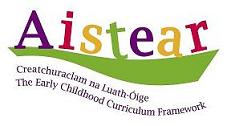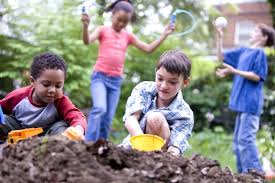 Play is the collective language of childhood. It is through play that children understand each other and make sense of the world around them. Children learn so much from play; it teaches them many social skills including sharing, taking turns, self-discipline and tolerance of others. Play is children’s means of assimilating the world, making sense of their experience to make it part of themselves.
Play is the collective language of childhood. It is through play that children understand each other and make sense of the world around them. Children learn so much from play; it teaches them many social skills including sharing, taking turns, self-discipline and tolerance of others. Play is children’s means of assimilating the world, making sense of their experience to make it part of themselves.
Jean Piaget states that “Play is the answer to how anything new comes about.”
Play is important to all children no matter what their impairments or behaviour. Children’s play develops over time and is enriched when adults give children the right kind of support. Children may need support if they are impulsive or regularly get into conflicts, children who are withdrawn or isolated, children whose first language is neither English nor Irish, children who have speech delays, and children with sensory or physical impairments may need specialised and focused support from the adult.
The importance of play is also acknowledged and enshrined in the United Nations Convention on the Rights of the Child (UNCRC). Article 31 of the UNCRC states that the child has the right to play and to join in other recreational activities
Learning and developing through play is linked to the following standards and components of Síolta, the National Quality Framework for Early Childhood Education NCCA 2006:
Standard 6: Play – Components 7.5,- 7.6
Standard 8: Planning & Evaluation – Components 6.1 – 6.7
Aistear the National Curriculum Framework NCCA 2009 ; Guidelines for Good Practice provides a guideline focusing in different aspects of pedagogy which describes how the adult can support children's learning and development across four themes, one of these themes Learning and developing through play
Below are some links to sites and articles which provide further information in relation to Interactions.
Aistear: the Early Childhood Curriculum Framework Learning and Developing Through Play
Aistear is the national curriculum framework for children from birth to six years in Ireland. It describes learning and development through the four interconnected themes of Well-being, Identity and Belonging, Communicating, and Exploring and Thinking
The Guidelines for Good Practice focus on four areas; building partnerships between parents and practitioners; learning and developing through interactions; learning and developing through play; supporting learning and development through assessment.
These guidelines use a number of learning experiences to illustrate what this practice might look like. While the learning experiences usually focus on a particular age group of children and a particular type of setting, many of them can be adapted to suit other age groups and other settings. Thinking about my practice questions help the adult reflect on what he/she does and says to support children’s learning and development. There are many connections across the four sets of guidelines. For example, many of the learning experiences in an individual set can support practice in the other guidelines. The link below is the Guideline for Learning and Developing through Play ,
http://www.ncca.ie/en/Practice-Guide/Aistear/Guidelines-for-good-practice-Learning-and-developing-through-play-pp-56-57-and-103-106-.pdf
 How Aistear was Developed: Research Papers
How Aistear was Developed: Research Papers
The National Council for Curriculum and Assessment (NCCA) commissioned four research papers to inform the work in developing Aistear: the Early Childhood Curriculum Framework. Drawing on national and international research, these papers look at how:
- particular understandings of education and care impact on children's experiences during early childhood education
- children learn and develop in early childhood
- play can be used to extend and enhance children's learning and development
- formative assessment can support and extend early learning and development.
These research papers are available at;
http://www.ncca.ie/en/Curriculum_and_Assessment/Early_Childhood_and_Primary_Education/Early_Childhood_Education/How_Aistear_was_developed/Research_Papers/
Play as a Context for Early Learning and Development.
This research paper by Dr. Margaret Kiernan is one of series of four research papers accompanying the Framework for Early Learning commissioned by the National Council for Curriculum and Assessment (NCCA).
Drawing from a broad multi-disciplinary literature, this paper brings together a number of key concepts that serve to illuminate a pedagogy of play in everyday practice.
http://www.ncca.ie/en/Curriculum_and_Assessment/Early_Childhood_and_Primary_Education/Early_Childhood_Education/How_Aistear_was_developed/Research_Papers/Play_paper.pdf
Children’s Early Learning and Development
This research paper by Dr. Geraldine French is one of the four research papers commissioned by the National Council for Curriculum and Assessment (NCCA). It is described by the author as essentially respond(ing) to the question - how should we envision and understand the child as a young learner? The paper is a stimulus for dialogue rather than a statement of fact and begins by outlining the context for early childhood care and education in Ireland by referring to our economic and social climate, the increasingly multicultural nature of society and relevant legislation and policy.
http://www.ncca.ie/en/Curriculum_and_Assessment/Early_Childhood_and_Primary_Education/Early_Childhood_Education/How_Aistear_was_developed/Research_Papers/Childrens_learning_and_dev.pdf
Aistear Síolta Practice Guide; Learning through Play:
Learning through Play is one of the Pillars of the Aistear Siolta Practice Guide. This pillar has a range of resources to help early years educators support and enable children to learn through play in Early Childhood settings. As with all the pillars in the Practice Guide, there are five categories of resources in Learning through Play:
1. Self-evaluation Tools
2. Examples and Ideas for Practice
3. Resources for Sharing
4. Action Planning Tools
5. Gallery
http://www.ncca.ie/en/Practice-Guide/Play/Pillar-Overview-Learning-Through-Play.pdf
 What is play and why is it important?
What is play and why is it important?
Much has been written about play. It is generally agreed that it is one of the most complex activities we engage in. This information sheet endeavours to draw together the most widely respected statements on play to provide a rounded and comprehensive analysis.
http://www.playwales.org.uk/login/uploaded/documents/INFORMATION%20SHEETS/what%20is%20play%20and%20why%20is%20it%20important.pdf